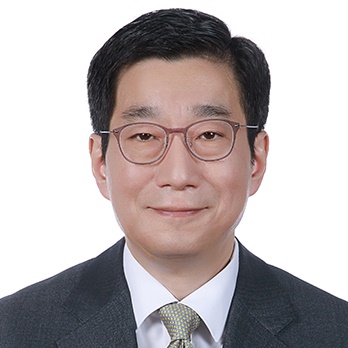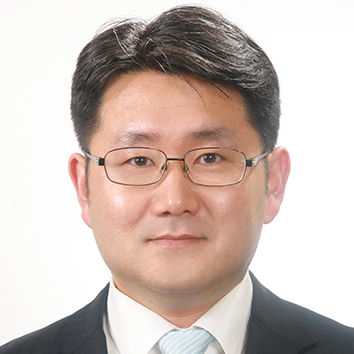China’s Intentions and Plans Revealed in Ambassador Xing Haiming’s Remarks
The so-called “bet” remarks by Chinese Ambassador Xing Haiming on June 8th sparked a diplomatic dispute between South Korea and China and aggravated the South Korean public’s already negative perception of China. Considering that the nature of his remarks is in line with the Chinese government and media’s attitudes towards South Korea, Ambassador Xing’s remarks are likely to be driven by political and diplomatic calculations from the Chinese government.
1. Expressing dissatisfaction with the foreign policy of the Yoon Suk Yeol administration
The Yoon Suk Yeol administration is pursuing a foreign policy based on ‘strategic clarity.’ China perceives this shift in South Korea’s foreign policy as aligning with the United States’ anti-China policies and ultimately posing a security threat to China. It is concerned that measures to deal with the North Korean nuclear issue, such as port visits by U.S. nuclear submarines and strengthening trilateral security cooperation among South Korea, the United States, and Japan, will likely target China. In that sense, Ambassador Xing’s remarks openly showed China’s concerns and dissatisfaction with the Yoon administration. Such Chinese behavior seems to be based on a highly biased and unilateral view, expecting South Korea to accommodate its demands based on the national power gap between South Korea and China.
2. Shaping a favorable atmosphere for South Korea-China cooperation by pointing out South Korea’s economic dependence on China
In the context of growing concerns about an economic downturn following the COVID-19 pandemic, the South Korean government is contributing to reconstructing global supply chains and seeking a foundation for sustainable economic growth by participating in the Indo-Pacific Economic Framework (IPEF) and Chip 4 alliance and practicing economic policies to diversify import sources of strategic materials. However, Ambassador Xing pointed out these efforts as “de-Sinicization” and attributed them to the cause of South Korea’s trade deficit with China. This seems designed to shape South Korean public opinion to believe that cooperation with China is material for South Korea’s economic growth and send a message that South Korea should change its current foreign policy direction to compromise with China.
3. Spreading the narrative that South Korea is responsible for the deterioration of South Korea-China relations
Considering China’s behavior over the so-called ‘Three No’s’ on THAAD, Ambassador Xing Haiming’s statement that “The current difficulties in bilateral relations are not China’s responsibility,” can be interpreted as an attempt to spread the narrative that South Korea is responsible for the deterioration of South Korea-China relations, not just within China but also within South Korea. If this narrative spreads in both countries, it can magnify the perception that the proactive foreign policy of South Korea, a democratic and developed country, is contributing to the deterioration of South Korea-China relations, thereby constraining South Korea’s diplomatic space and causing an unfavorable position in the relationship with China.
4. Creating a favorable political environment for China by exploiting divided public opinion in South Korea
Under a democratic political system, public opinion in South Korea is significantly divided between conservative and progressive views. Therefore, China’s signaling of opposition to the current government through a meeting with the leader of the opposition party could be seen as a psychological warfare tactic to capitalize on the political inclinations of the audience and create a favorable environment for China. Although this triggered a backlash from the South Korean government and the majority of the people in the short term, this might prevent South Korea from approaching China with a bipartisan consensus like the United States. It also indicates an intention to establish a foundation for potential shifts in South Korea’s China policy in response to domestic political changes.
Outlook on China’s Policy toward South Korea
In order to influence South Korea’s foreign policy or prevent further strengthening of the South Korea-U.S. alliance, China is likely to increase pressure on South Korea in the following three aspects:
Firstly, China will likely continue using ‘prodding’ tactics similar to Ambassador Xing’s recent remarks. China will closely monitor South Korea’s position on issues related to the Taiwan Strait, the Indo-Pacific strategy, and global supply chain restructuring. Whenever South Korea takes positions or policies that China does not want, China will not hesitate to respond with diplomatic improprieties or actions that undermine the spirit of mutual respect. Through this approach, China aims to stimulate concerns within South Korea about escalating conflicts in South Korea-China relations.
Secondly, China will exploit the North Korean card. As the South Korea-U.S. alliance is strengthening, China will emphasize the logic that denuclearization and peace on the Korean Peninsula are impossible without China’s cooperation, try to make it a prevailing opinion in South Korea, and urge South Korea to keep a balance between the United States and China. Moreover, China will seek to constrain the United States without direct confrontation in the Indo-Pacific region through North Korea. In that sense, even if North Korea conducts actions that cross the existing ‘red lines,’ including additional nuclear tests, China is likely to use its veto power over passing UN-level condemnations or further sanction resolutions against North Korea.
Thirdly, China may resort to economic coercion as a demonstration of its capabilities, if the current conflicts between South Korea and China further escalate. Such retaliation would not only have tangible effects but also stimulate insecurity within South Korea and amplify domestic debates about the country’s China policy.
Policy Recommendations for South Korea
To address China’s pressure on South Korea and establish a relationship based on mutual respect, the South Korean administration should take note of the following.
Firstly, South Korea should clearly express its stance on various international issues. The South Korean administration has released its “Strategy for a Free, Peaceful and Prosperous Indo-Pacific Region” and emphasized its responsibility and contribution as a democracy with a developed economy. Based on it, South Korea needs to participate in various international issues, while affirming the universal values South Korea has pursued, such as democracy, human rights, and opposition to change the status quo by force. At the same time, South Korea should strengthen its solidarity with like-minded countries that share similar values, such as the United States and Japan, and cooperate on international issues.
Secondly, South Korea should consistently and principledly respond to China’s diplomatic improprieties and pressure. By doing it, South Korea can convey the message that it has uncompromisable issues and that South Korea and China need to approach bilateral relations based on the principle of mutual respect.
Thirdly, South Korea should enhance solidarity with the international community and establish a network to address China’s pressure jointly. While diversifying the sources of strategic materials and reducing its economic dependence on China, South Korea leverages the growing international concern about China’s pressure and infiltration over China’s economic coercion, three warfares (public opinion warfare, psychological warfare, legal warfare), and influence operations and strengthen cooperation with the international community and build a network against China’s pressure.
Fourthly, South Korea should impress upon China that its current North Korea policy does not serve China’s interests. South Korea should move away from wishful thinking that China will use its influence to denuclearize North Korea or promote its reform and opening up. Furthermore, South Korea should make China aware of the consequences of being indifferent to South Korea’s security while solely pursuing its own security interests.
Lastly, apart from addressing conflicts between South Korea and China, South Korea should seek cooperative agendas and expand the scope of cooperative consensus. In that process, the South Korean administration should emphasize the value of South Korea as a neighboring economic power and the national interest created by cooperation with South Korea. These endeavors can help China, which approaches bilateral relations from the perspective of the U.S.-China strategic competition, to adjust its perception of South Korea and establish a foundation for South Korea-China cooperation.

 Facebook
Facebook Twitter
Twitter
